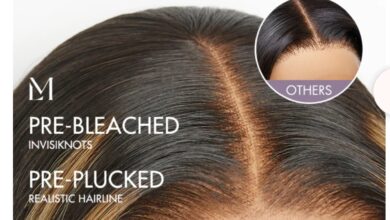Why You Should Wear Sunglasses in Winter (Not Just Summer!)

Many people believe that designer sunglasses are only made for hot summer days since they are called ‘Sun’ glasses. However, this is a big misconception. Sunglasses serve as protective eyewear that should be worn year-round, including in winter.
Even on cloudy days, the sun’s harmful UV rays can penetrate cloud cover, potentially damaging your eyes in the long run. Thus, winter sunglasses are an eyewear staple, no matter if it’s sunny, cloudy or chilly outside.
Read on to know why you should wear shades in cold weather.
1. UV protection
The sun emits harmful UV (ultraviolet) rays throughout the year, even during the colder months. Prolonged exposure to UV rays can elevate the risk of skin cancer, cataracts, premature wrinkles and eye growths. This risk increases in winter, as snow reflects up to 80% of the sun’s rays, which essentially doubles your exposure. Therefore, wearing sunnies is as important as applying sunscreen to protect your eyes and skin from UV radiation.
According to optometrists, you can opt for polarised shades that come with 100% UVA and UVB protection. Polarised sunglasses are equipped with a special coating, which blocks light waves that are reflected off horizontal surfaces. They improve colour accuracy and reduce glare, making them suitable for all weather conditions.
2. Cut down on glare and drive safely
On a sunny winter day, do you squint at everything, from wet roads to snow-covered ground? This is known as sun glare, which can be particularly dangerous while driving in winter, as it can lead to accidents.
Ice and snow reflect light, which in turn increases glare, obstructing your view of road conditions, pedestrians, traffic signals and other vehicles. Sun glare can also result in eye strain, squinting and headaches, which can distract you while driving.
Therefore, you should wear polarised sunglasses since they can cut through harsh light and promote clear vision. You can also choose a lens tint that enhances visibility and contrast in various light conditions. Opt for shades with grey or brown tints, as they can help reduce glare without altering the colour, making them ideal for both summer and winter seasons.
3. Prevent Snow Blindness
You should protect your eyes by wearing sunglasses when outdoors in the snow or while enjoying winter sports like snowshoeing and skiing. Otherwise, you can experience snow blindness, which is caused by overexposure to sunlight.
Snow blindness is a painful condition that takes place when ice and snow reflect UV rays, particularly at high altitudes, bouncing them right into your eyes. Some symptoms of snow blindness include:
- A gritty sensation in the eyes
- Sensitivity to bright light
- Cloudy vision
- Headaches
- Swelling and pain in the eyes
- Red eyes
Sunglasses with photochromic or transition lenses can help you prevent snow blindness. These glasses allow you to easily switch between your regular prescription glasses and shades, as they automatically adjust according to the light conditions. They make outdoor activities more comfortable and convenient with improved visual clarity.
Moreover, winter sunglasses can help prevent chilly temperatures from freezing the cornea and contracting blood vessels. They also protect against corneal abrasions that can be caused by flying debris.
4. Reduce the risk of several eye conditions
Sunlight and wind exposure in the long term can lead to several eye diseases, including eyelid cancer, age-related macular degeneration, cataracts, pinguecula, etc. It can also lead to dry eye syndrome, where the eyes do not produce enough tears, causing cloudy vision and irritated eyes.
To protect your eyes and the surrounding skin from harsh environmental conditions and maintain the required moisture, you should wear 100% UVA/B-protected or wraparound shades.
With Feel Good Contacts, you can maintain your eye health throughout the year with their prescription and designer shades, contact lenses, glasses, eye drops and much more. Now, you can enjoy your winter sports and trips as much as your beach days.




